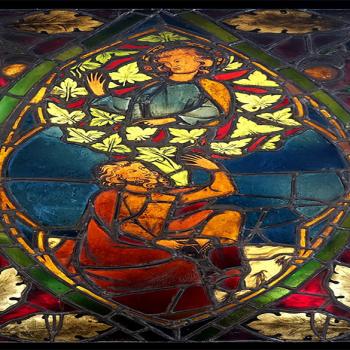In last week's column, I argued that Americans, since the earliest days of the Republic, have believed that they were living in a Christian nation. But were they right? Was the United States founded as a Christian nation? Did the Christian nationalism espoused by educators and politicians, Unionists and Confederates, fundamentalists and modernists, and civil rights activists and the members of the Christian Right, reflect the spirit of the founding era or, perhaps more importantly, the spirit of Christianity?
The answers to these questions are complicated. How we answer them will depend on how we define our terms. What do we mean when we use terms such as "Christian," "founding," and "nation"? A close examination of these words and their relationship to one another in the context of early American history suggests that the very question, "Was America Founded as a Christian Nation?" does not do justice to the complexity of the past. When we think about the many ways in which the words in this sentence can be defined, we come to the conclusion that the question itself is not very helpful.
How should we define the label "Christian" as it relates to the time of the American founding? We can define "Christian" as a body of doctrine -- a collection of theological truths that the church through the ages has described as Christian "orthodoxy." Such an approach would require us to examine either the nation's founding documents or the religious beliefs of the founders to see if those beliefs measure up to the standards of Christian orthodoxy as found in ancient formulations of faith such as the Apostles' Creed or the Nicene Creed. We could, for example, ask whether a particular signer of the Declaration of Independence believed in God, the Trinity, the deity of Christ, or the resurrection of Jesus Christ. (But then we must ask if such beliefs actually shaped his view of government.) We might examine the earliest forms of national and state governments to see if conformity to standards of Christian orthodoxy were required to vote or hold political office. Or perhaps we could explore the intellectual roots of the values for which the Revolution was fought to see if these values -- liberty, freedom, natural rights -- were somehow grounded in Christian beliefs.
Another way of defining the meaning of the word "Christian" is through orthopraxy. In other words, did the behavior, practice, and decisions of the founders and the governments that they established conform to the spiritual and moral teachings of Christianity as taught in the Bible? Are the actions of the founders consistent with the teachings of Jesus? Do they reflect biblical standards of Christian justice and compassion? Do they institute policies that respect outsiders and neighbors as human beings created in God's image and thus worthy of dignity and honor? Such an approach would require a close examination of specific policies and decisions made at the time of the American founding. For example, we might ask whether a nation that condones the institution of slavery can be honestly called "Christian."
We may also want to examine the Christian character of the people who made up the nation at the time of the founding. Although I am skeptical of the idea that any society on this side of eternity can be truly called Christian, it does seem that a society can reflect, in a limited sense, Christian principles if the vast majority of its members are doing their best, through the power of God's grace and the work of the Holy Spirit, to live authentic Christian lives. Such an approach takes the focus away from the founders and the founding documents and places it squarely upon the religious behavior and practice of ordinary Americans. Those who argue this way might examine church membership, church attendance, or the number of communicants in a particular congregation or denomination. Such piety is often difficult to quantify, but there do exist signposts that can give us a general sense of the spiritual commitments of people living during this period. For example, church membership was a sign of personal commitment to the religious life of a Christian congregation. Similarly, becoming a communicant (partaking of the sacrament of the Lord's Supper) demonstrated devotion to the Christian gospel.
We could ask similar questions about the words "nation" and "founded." At what point did the United States of America become a nation? Was it in 1776, when the Continental Congress declared its independence from England? Was it 1789, when the United States Constitution became the official frame of American government? Or was it sometime later? How we answer this question will have a profound influence on whether we can truly say the United States was "Christian." And at what point was the United States of America "founded"? Was it 1776 or 1789? Or was it founded when the Pilgrims arrived on American shores aboard the Mayflower in 1620, as many of today's Christian nationalists suggest?
These are the kinds of historical complexities that we seldom hear debated in the public square. We live in a sound-bite culture that makes it difficult to have any sustained dialogue on these historical matters. It is easy for those who argue that America is a Christian nation (and those who do not) to appear on radio or television programs, quote from one of the founders or one of the founding documents, and sway people to their positions. These kinds of arguments, often contentious, do nothing to help us unravel a very complicated historical puzzle about the relationship between Christianity and the American founding.
We need historians more than ever.
12/15/2010 5:00:00 AM





